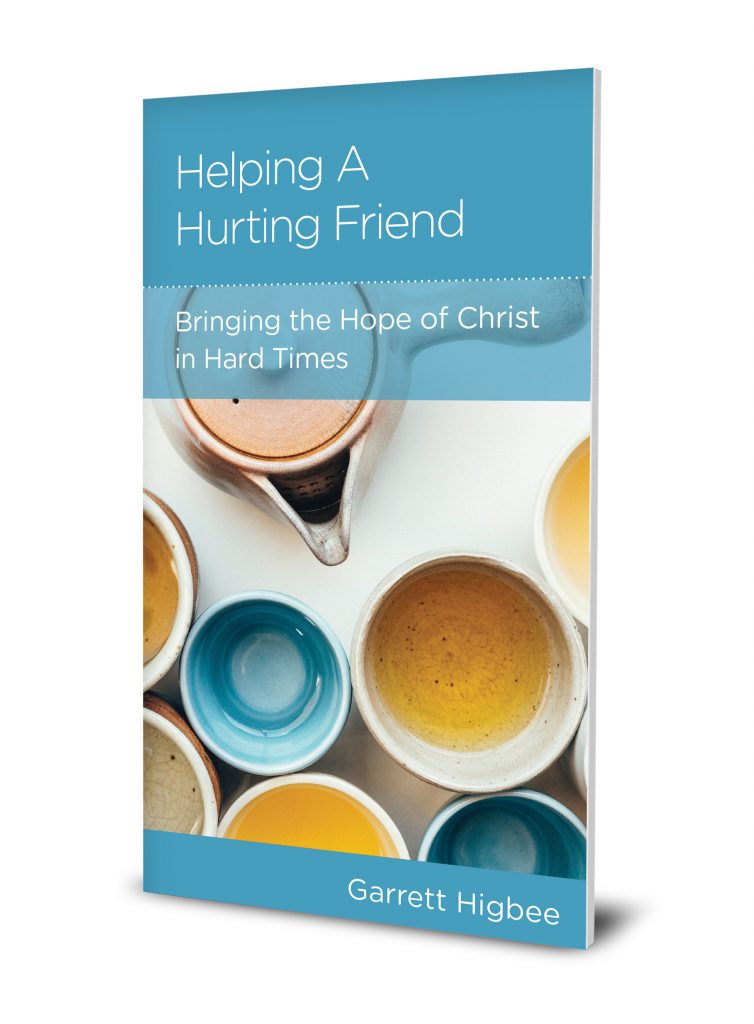Most of us remember a time when a friend came alongside us and said just the right thing, listened with compassion, or cared enough to bring us some needed correction. At the same time, most of us would admit we sometimes feel ill equipped to know what to say or do when a friend is struggling emotionally or spiritually. The question really isn’t whether we will be called to help a friend in need—it is will we be ready? More importantly, is my counsel and care biblically wise, compassionate, and effective? The truth is, we can all grow in the practice of giving and receiving the truth in love (Ephesians 4:15). Let’s look at some simple but highly effective skills to help us speak the truth in love with more compassion and effectiveness when encountering a friend in need.
The Bible is clear that one of the sweetest things about friendship is the counsel of someone who knows us and cares for us well (Proverbs 27:9). In over thirty years of counseling, I have come to believe godly friends are invaluable in providing wise and sustainable care. That’s why I often ask counselees to invite a friend into the process. Wise counsel does not require a doctorate in some type of therapy. In fact, the Bible gives us a totally different perspective on what it takes to counsel wisely. Our competence comes from our personal relationship with Christ (2 Corinthians 3:5), our knowledge of his Word, and our love for others (John 13:34). I am convinced that most wisdom issues are well within the scope of competence of a godly friend. The Bible has a lot to say about friends comforting one another (2 Corinthians 1:3–5), bringing instruction (Romans 15:14), and providing encouragement for everyday problems (Hebrews 3:12–14).
Being a Confidant
Before I share how to grow in skillful soul care as a friend, consider what kind of friends you have and what type of friend you want to be. Proverbs 18:24 says “a man of many companions may come to ruin, but there is a friend who sticks closer than a brother.” Are you this type of friend? Do you steer clear of gossip or slander, guarding your friend’s delicate personal information, while taking them to the Lord in prayer? Be a safe person for your friend to confide in. Repent of any areas where you’ve failed to love them well, recommit to stewarding your friendships for God’s glory, and strive to grow in the areas of wise, loving counsel.
Four Steps to Growing as a Godly Friend
The Bible is the best place to point a friend who is caught in sin or suffering. What are the best ways to minister while avoiding common pitfalls like presumption, platitudes, or premature advice? I have failed in all those areas over the years, and that is why I developed what I call the C.A.R.E. model. These principles can be used in church-based counseling but also apply to caring well for a friend in need. There are four critical steps that outline how to approach, care for and counsel a hurting friend: Connect, Assess, Respond, and Encourage.
1. Connect with Compassion (Colossians 3:12)
Godly friends feel deeply for those who are struggling. Hopefully you already have relational passport that allows you to step into hard things with your friend group. Nothing helps more than showing compassion. Christ was moved many times by the suffering or struggles of a friend (John 11:35). I love the idea of being a co-sufferer for someone, in reflection of what Christ has done for me. Perhaps you are more of a truth-based person and showing mercy seems hard to muster. This would be a great opportunity for you to spend more time with Christ and his Word. Think of his mercy and grace toward you, and how he is so present and so sympathetic to your weakness and struggles (Hebrews 4:14–16). Nothing will help you grow in compassion like seeing your own need and letting Christ and others comfort you.
2. Assess by Drawing out the Heart (Proverbs 20:5)
Godly friends ask, they don’t presume. Most of us have been hurt by people assuming something about us without knowing us well or presuming of our motives based on very little information. A godly friend learns to ask heart-revealing questions and listens to understand, not just to respond. You move from “fruit to root”[1] issues by discerning what is an obvious unwanted behavior (bad fruit), to helping to expose motives (root issues). Ask what is going on in their life that is causing stress. Ask them to articulate what they want from that situation. Is their hope in a certain outcome? Help them to see where desire may have morphed into a demand (James 4:1-12). It is important not to jump to conclusions about their motives. Press beyond any complaints or venting to help them discover what may be driving their distress. Then you will be able to bring wise counsel that targets the heart.
3. Respond by Speaking the Truth in Love (Ephesians 4:15)
Godly friends strive to love like Christ. Love never compromises truth, but it also never compromises grace. Most of us err on one side or another. Jesus was perfect blend of both (John 1:14). He knew when to admonish and when to encourage. We can all grow in this balance. In which area do you need to grow in more—speaking the truth lovingly but boldly, based on what the Bible says? Or do you need to learn how to better approach your friends with grace and a longsuffering attitude? Think of someone who brings the Word of God to you but does so with a winsome and patient demeanor. What can you learn from their approach? Ask a few friends to give you feedback regarding how you come across. Study the Bible in the area you need to grow most. I would also suggest a good book like Instruments in a Redeemers Hands[2] to give you tools for becoming a wise, grace-filled helper.
4. Encourage Abiding in Christ and Community (Hebrews 3:12–14)
Godly friends stay the course. As your friend gets untangled from a sin issue or learns to cling to Christ in a trial, your encouragement can help to keep them abiding in Christ. As a friend, we need to be intentional to keep an eye on their temptation to fall back into sin or isolate in their suffering so they know they aren’t struggling alone. This might mean regular one-on-one visits, or it could mean pressing them to get more formal biblical counsel. Perhaps you are a bridge to a small group where you and others can provide ongoing mutual ministry. The amazing thing, is as your friend is helped by your counseling and care, they can’t help but give testimony to God’s transforming grace and often find themselves helping others in response (2 Corinthians 1:3–5).
What about You?
Can you see the benefits of godly friends counseling one another? Where do you need to grow the most in the C.A.R.E. steps? Perhaps it is your approach needing more patience or compassion. Maybe you need to listen more intently. Some of us connect well but find ourselves trying to be more therapeutic rather than speaking the truth in love. Finally, with a busy life and problems of our own we can start well but fail in the follow through. Identifying where to grow is a great first step!
[1] Transformed Level 2: Small Group Leader Training, Soulcareconsulting.org
[2] Tripp, P. D. (2002). Instruments in the Redeemer’s Hands: People in Need of Change Helping People in Need of Change. P & R Pub.






